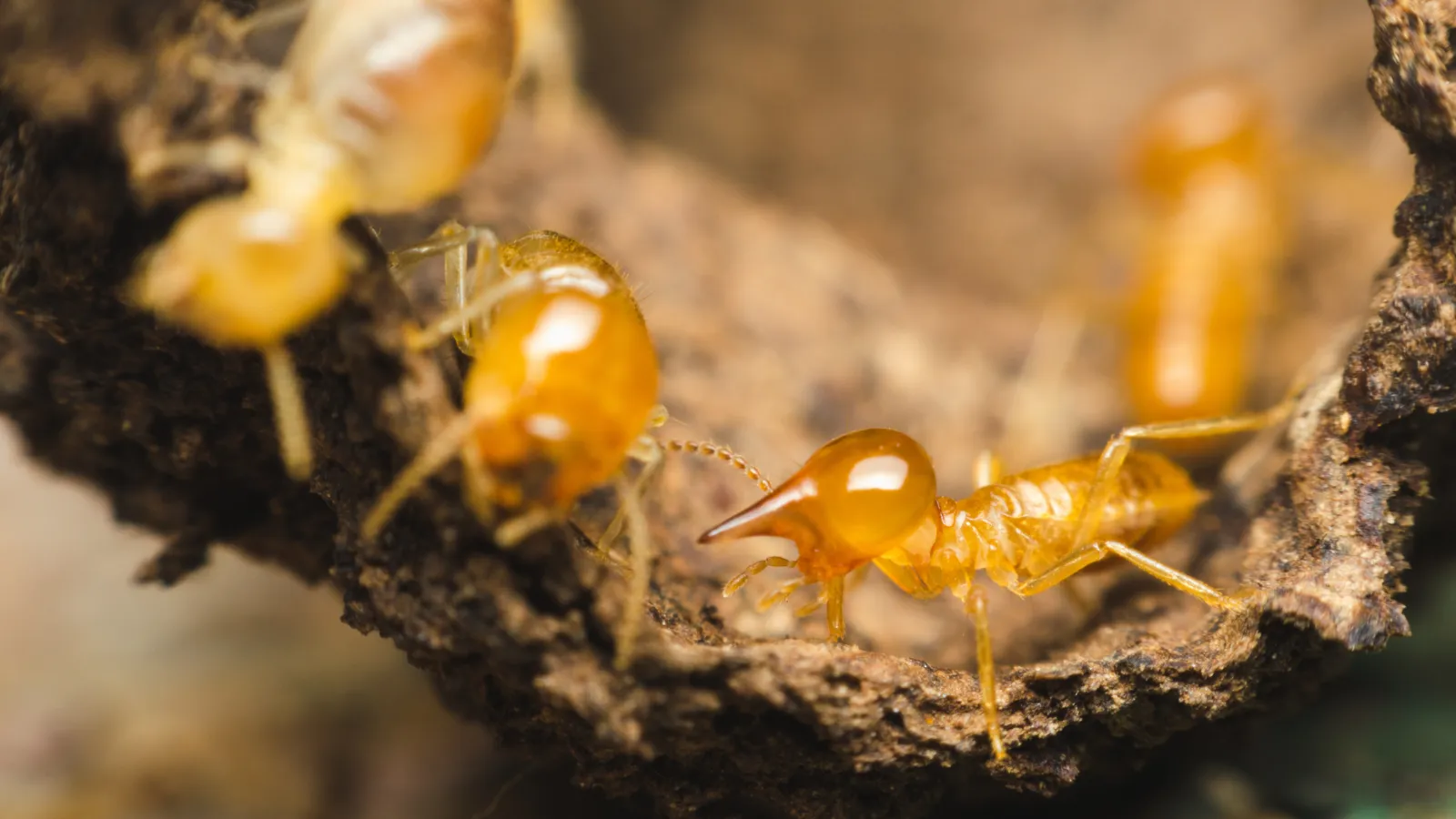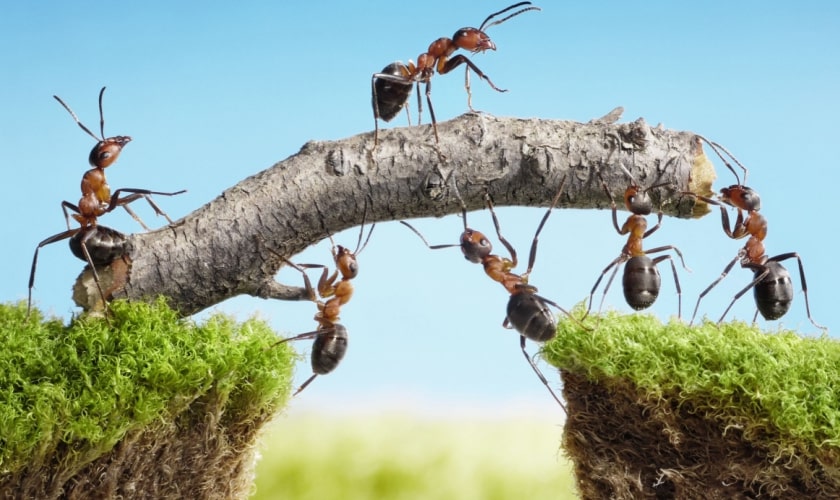Environmental Effect of Bug Control: Balancing Efficiency With Sustainability
The environmental influence of insect control is a crucial problem that needs a delicate balance between attaining efficiency in managing parasites and ensuring sustainability of our ecological communities. From the usage of hazardous chemicals that permeate into our soil and water to the unintended consequences on non-target species, the repercussions of standard pest control practices are far-reaching.
Hazardous Chemicals in Insect Control
The usage of hazardous chemicals in insect control positions significant ecological and wellness dangers that necessitate careful consideration and mitigation techniques. Chemicals, insecticides, and herbicides are typically used to get rid of bugs, but their widespread application can result in unplanned effects. These chemicals can pollute soil, water sources, and the air, impacting not only the targeted bugs but additionally beneficial pests, wildlife, and human beings.

To attend to these threats, incorporated bug administration (IPM) methods are being advertised as an extra lasting option. IPM involves a combination of approaches such as biological control, environment adjustment, and the targeted usage of chemicals as a last resource (ant control waxhaw nc). By adopting an all natural technique to pest control, we can reduce the ecological and health and wellness impacts connected with hazardous chemicals while properly handling pest populations
Influence on Non-Target Species
Considering the unplanned repercussions of pest control techniques, the impact on non-target types is a vital element that requires thorough examination. While pest control procedures intend to target certain insects, various other organisms in the environment might be unintentionally affected. Non-target types, consisting of beneficial bugs, birds, creatures, and even plants, can suffer direct or indirect damage from chemical applications or organic control methods.
Pesticides made to battle a certain bug parasite might damage pollinators like or natural predators such as ladybugs. Biological control representatives, if not species-specific, can posture threats to unintended targets, disrupting the eco-friendly equilibrium.
To alleviate the impact on non-target types, integrated pest management (IPM) strategies that stress an all natural approach to pest control are recommended. These approaches focus on making use of eco-friendly practices, lessening damage to valuable organisms while efficiently managing pest populaces. Performing detailed threat evaluations and checking the results of pest control efforts are important action in guarding non-target types and promoting overall ecosystem health and wellness.
Soil and Water Contamination
Unintentional ecological effects of pest control techniques prolong beyond affecting non-target varieties, with significant implications for soil and water contamination - ant control. Pesticides, herbicides, and chemical fertilizers made use of in pest control can leach into the soil and pollute groundwater, posturing a risk to both water and earthbound ecological communities.
Water contamination is an additional crucial problem connected with bug control methods. Overflow from agricultural areas treated with pesticides can carry these chemicals right into neighboring water bodies, influencing marine microorganisms and water quality. Pollutants in water resources can have far-ranging effects, impacting not only marine life yet also human health and wellness via the intake of polluted water or marine microorganisms. To minimize dirt and water contamination from bug control activities, integrated pest management approaches that focus on sustainability and reduce chemical inputs are important.
Air Pollution From Pesticide Use
Direct exposure to air-borne pesticides throughout agricultural applications poses a significant issue for air contamination control steps. When chemicals are sprayed onto plants, they can volatilize into the air and kind unstable organic substances (VOCs) and other air-borne toxins. These chemicals can add to the formation of ground-level ozone, a major element of smoke that can have destructive effects on human health, crop productivity, and total air high quality. Additionally, pesticide drift, where chemicals are carried by the wind to unplanned areas, can bring about the contamination of close-by communities and water bodies.

Strategies for Sustainable Insect Control
In the realm of agricultural techniques, implementing sustainable pest control techniques is critical for preserving environmental balance and protecting crop yields. Sustainable pest control emphasizes the use of eco-friendly approaches to take care of parasite populaces properly while go to my blog decreasing injury to non-target microorganisms and environments. Integrated Insect Administration (IPM) is a widely adopted method that integrates biological, social, physical, and chemical control methods to accomplish long-lasting insect management remedies.
Crop turning and diversification are likewise effective methods to disrupt pest life cycles and develop less beneficial conditions for bugs to thrive. Eventually, by incorporating these lasting insect control approaches, farmers can attain a balance in between pest management efficiency and ecological stewardship.
Conclusion
To conclude, the ecological impact of bug control approaches must be meticulously considered to balance efficiency with sustainability. Hazardous chemicals utilized in parasite control can lead to soil and water contamination, air pollution, and damage non-target varieties - ant control services. It is essential to carry out lasting parasite control techniques to reduce these unfavorable impacts on the atmosphere and advertise a much healthier ecosystem for future generations
By taking on an alternative approach to pest control, we can minimize the environmental and health and wellness effects connected with dangerous chemicals while properly taking care of pest populaces.

To minimize the air pollution caused by chemical usage, it is vital to take on integrated bug monitoring techniques that focus on the usage of non-chemical insect control methods, such as plant turning, all-natural predators, and resistant plant selections. Sustainable parasite control highlights the usage of eco pleasant methods to handle bug populaces effectively while reducing injury to non-target organisms and ecosystems. Integrated Parasite Monitoring (IPM) is a widely adopted method that integrates organic, cultural, physical, and chemical control approaches to attain lasting pest management solutions.
Comments on “Reliable Ant Control: Specialist Services to Eliminate Ant Infestations”